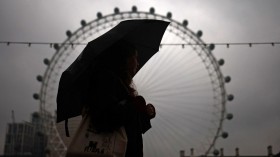Women should receive regular mammograms before the age of 50, a new study suggests.
Published in the journal CANCER, the study found most deaths due to breast cancer occur in younger women who do not receive regular mammograms.
The use of mammograms as a tool for preventing deaths related to the disease is controversial, however, especially given the 2009 proposal issued by the United States Preventive Service Task Force to limit screening to women between 50 and 74 years old.
In an effort to gain a more definitive understanding of the value of mammography, Dr. Blake Cady, a professor of surgery emeritus at Harvard Medical School, led a team of researchers in a study based on a technique called "failure analysis." Using this method, the scientists looked backward from death to discover correlations at diagnosis, rather than looking forward from the start of a study.
The researchers examined cases of invasive breast cancer diagnosed at Partners HealthCare hospitals in Boston between 1990 and 1999 and followed through to 2007. Among the data included in the study were demographics, mammography use, surgical and pathology reports, recurrence and death dates.
Seventy-one percent of the more than 600 cases of breast cancer-related deaths examined were among women who had not been screened with mammography, the researchers found. Furthermore, 50 percent of all breast cancer deaths from this group occurred in women under the age of 50.
"The biological nature of breast cancer in young women is more aggressive, while breast cancer in older women tends to be more indolent," Cady said. "This suggests that less frequent screening in older women, but more frequent screening in younger women, may be more biologically based, practical, and cost effective."
The study further uncovered a marked decrease in deaths associated with the introduction of screening. Half of those diagnosed with breast cancer in 1969 died within 12.5 years after diagnosis; however, the study showed, only 9.3 percent of women diagnosed with invasive breast cancer between 1990 and 1999 had died at the time of the report.
"This is a remarkable achievement, and the fact that 71 percent of the women who died were women who were not participating in screening clearly supports the importance of early detection," said co-author Dr. Daniel Kopans of Harvard Medical School and Massachusetts General Hospital.
In regards to studies that screening leads to over-diagnosis, Kopans argues that such papers have failed to look at individual women but instead focus on registry data, leading to "false conclusions."
"This present paper examines each woman as an individual with direct data on who was screened and which women died of breast cancer," Kopans said. "It addresses the question from a different and unique perspective."
© 2024 NatureWorldNews.com All rights reserved. Do not reproduce without permission.





